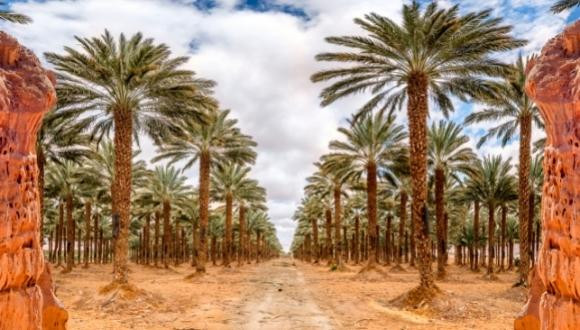Desert Agriculture
Manna Center for Food Safety and Security, Tel Aviv University in collaboration with ARO-Volcani Center
Course Number: 0466.4010
Form of Assessment: Exam will be given at the end of the course
Credit Points: 2
Coordinated by Dr. Arnon Dag and Dr. Uri Yermiyahu (ARO) Course Lecturers: Dr. Alon Ben-Gal, Dr. Eugene David Ungar, Dr. Rakefet David-Schwartz, Dr. Ran Erel, Dr. Uri Nachshon, Dr. Tarin Paz, Dr. Or Sperling, Dr. Hagai Yasuor.
Background
Arid and semi-arid regions are expanding world-wide due to climate change, overgrazing, deforestation, drought, and improper/inappropriate agricultural techniques. Traditionally such areas produce low yields and poor quality food. However, to sustain the world’s growing human population, food production must become more intense. Israel is unique in that her deserts are receding instead of expanding. In fact, the U.N. Development Program called Israel “one of the driest, but agriculturally most successful, countries of the world”. The quantity and quality of food production in arid areas can be improved through the application of modern technologies and knowhow being developed in Israel. The type of plant cultivar, soil, fertilization and irrigation practice, and pest control greatly affect yield. Livestock is often considered in terms of overgrazing and soil degradation; however, proper animal species and breed, herd size and movement can yield greater plant diversity, stimulate grass tillering and improve seed germination. Agriculture using modern technology, and executed properly under arid and semi-arid conditions, enables farmers to control or optimize many variables to create a more favorable environment for enhanced food production and hence food security.
Aims
To enrich the students with a basic understanding of the latest advances in agriculture in arid and semi-arid environments including: effects of biotic and abiotic environmental conditions, biological principles involved in plant and animal production, and technologies to improve production.
Main Subjects
The main subjects include: The effects of abiotic stress-causing factors (temperature, humidity, drought, salinity) on vegetable production, nutrient requirements for vegetables, orchard crops (citrus and olive), rain-fed crops, plant protection (arthropods, nematodes and pathogens), and rangeland grazing.
The course will consist of two major components:
1. Frontal lectures from experts in each field.
2. Professional tour and visits to relevant sites.
Please check with us if this course is given this year.


